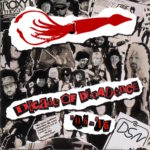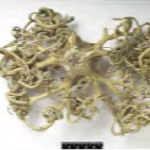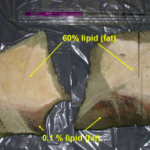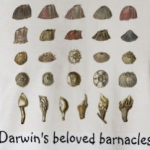CNN.com reports this morning on “Fried dolphin on menu in japanese town”. I do not want to bear on the ethical issues of harvesting dolphins. Every culture has their animals they eat that other cultures are disgusted by, as stated in the article:
“Locals know they offend Western sensibilities by eating dolphins, but they say it’s a tradition hundreds of years old. And they say outsiders have no more right to tell them to stop eating dolphins than they would have to demand that Westerners stop slaughtering chickens or cows.”
In Sweden, some villages eat horse. In the U.S. we eat all sorts of strange variants of things. In the U.K., well, lets just face it, who even likes english food?? Here is rural Pennsylvania, deer is hunted like crazy and you can find all sorts of deer-inspired dishes. Conversely in Japan, deer are considered sacred and not eaten, yet there is no outcry by the japanese for american hunters to stop. Unfortunately, the IUCN Red List denotes the Bottlenose Dolphin’s status as DD for Data Deficient. Hence, there is not enough to evaluate the species’ conservation status. Dolphin is also hunted in other parts of the world. I am certain there will be comments decrying the killing and inhumanity of the way they are slaughted. This is not what I want to discuss though.
 Dolphin meat sold in stores in Japan. Photo courtesy of Sea Sheppard via ENS.
Dolphin meat sold in stores in Japan. Photo courtesy of Sea Sheppard via ENS.
What is on my mind is the health of the consumers. One thing I am slowly learning in conservation issues is that if you want people to stop doing something, you need to 1) demonstrate that it harms them directly and 2) it is in their best interest to stop a practice. This dolphin story is a case in point, one of many out there that needs to emphasize the human element. Here at Deep Sea News we have a theme of concern for people’s health and their seafood consumption choices.
What the CNN.com article does point out is that dolphin meat contains extremely high mercury levels.
“Complicating the debate are findings suggesting that eating dolphins may not be good for one’s health. The Japanese government said in 2005 that bottlenose dolphin meat contains 12 times more mercury than blue fin tuna — high levels of mercury in fish can cause health problems in pregnant women and young children.
A city councilman in Taiji, Junichiro Yamashita, grew so concerned about mercury levels that he persuaded locals schools to stop serving dolphin meat at lunch. He even plucked some of his hair, sent it off for testing and discovered that it contained seven times as much mercury as the U.S. Environmental Protection Agency considers safe.”
Additionally, Environment News Service reported in 2005 of a study on dolphin meat which found “19.2 parts per million (ppm) of mercury, 48 times higher than the maximum advisory level of 0.4 ppm set by the Health, Labor and Welfare Ministry of Japan.” Since dolphins are top predators in the ocean, they sequester all the pollutants in their tissue from the chain of organisms leading up to its prey. This is referred to as bioaccumulation and includes mercury as well as organic pollutants and heavy metals.
What it breaks down to are your traditions more important than your health? If so, if you have children or are nursing a baby, is it more important than your their health and development? Traditions aren’t the easiest thing to break and they can bind together a community in unseen ways. But sometimes traditions can lead to devastating results. I ask the people of Japan to boycott and outlaw the sale of dolphin meat, if only as a health risk to those villagers – without regard to any other ethical reasons. Maybe its the father-of-two in me, but I only want to see healthy babies and children, as well healthy and happy adults.






And that doesn’t even mention the PCBs, DDTs and PBDEs and their metabolites! And we know dolphin tissues contain high levels of those too.
Case in point: my Japanese colleagues recoiled at the notion that my favorite meat is rabbit. To them it is a pet…
Rabbit isn’t going to give you Hg poisoning.
There may be karma after all.
I forgot to mention chickens and rabbits are grown in farms for consumption. They would not exist if not to be eaten. Anyway, it ignores the unwritten rule that the further up the intelligence chain, the less inclination we have to eat animals. That’s just the way it is for most people, even I would dare say, in Japan. Jellyfish, fish, chickens, cows, young Republicans, dolphins, primates. In that order. ( JOKE don’t take it out of context all you dolphins out there ).
Any information on where this village is, or who lives there? The way this seems to be framed is as a specific village in Japan as opposed to Japan-at-large, which makes me wonder if the village in question is comprised of one of Japan’s indigenous peoples. In which case, there is another social ethics question in play, one which might suggest not calling for the people of Japan to shut down this village’s consumption of dolphin.
By way of example, among PNW Native-American tribes, there is a huge resentment of the EPA for trying to control/reduce how much seafood the tribes consume, even though the attempt is driven by concern for the physical health of the individuals in the tribes. The EPA tends to frame the issue as, “Look, the fish got screwed up, so we’re all going to have to pull together and make some sacrifices until things improve.” The tribal POV tends to be “White folks screwed up something that’s important to our culture and religion—but not theirs—and they’re expecting us to bear the price of their callousness and disregard again.”
So, does anyone know where this village is? Or if indigenous/non-indigenous issues are at play here? Because if they are, the “we’re just doing this for your own good” line isn’t likely to play too well, and calling on the people of Japan to outlaw eating dolphin isn’t terribly ethical.
The village is Taiji, mentioned in the 2nd quote. You are right that the government should probably not be too enforcing, but take a more educational approach. I would not want to make a group of people feel marginalized because of traditions. I do not know if it is an indigenous population there.
Survival of the rmax-fish-fishing-fisherman?
Taiji is in southern Japan which is not where the indigenous, Ainu, live. A quick Google search of Taiji Japan brought me here:
http://www.furcommission.com/resource/perspect3.htm
They are a whaling village.
there is no need to dolphins!
How would it change the discussion of ethics if it became apparent that dolphins were somewhere between chimp and human in intelligence? There is at least some evidence that they are (see, for example, http://www.guardian.co.uk/science/2003/jul/03/research.science ) — but what if it turns out that their vocal communications meet the minimum criteria for what we think of as human style language: not only grammar, but an ability to reference objects symbolically and actions or objects in the abstract rather than the immediate sense?
At what point of evidence does it become an issue of, are we killing another intelligent species to eat, and is this ok because they still aren’t human?
Just asking, purely for the conversation.
I have my own personal opinions. I think it comes down to an individual’s or a culture’s view of the world and their role in it. What does it mean to be a human, to have “culture” and what degree of responsibility do we feel to world outside of the human species.
My view, which you may disagree with, is that we are integrated into the ecology of the planet. We are habitat modifiers, yet exist with a conscience and can choose how to act behave in discordance with ecological laws. I believe humans have a responsibility to not be wasteful of resources and to reduce their impact wherever they are, whether its an office building or the Appalachian Mountains.
With that being said, I don’t red meat because of certain health reason and I don’t eat poultry because I don’t need to. I eat seafood and eggs for my occassional protein and tons of fruits, veggies and grains. I think we should eat the food we need to eat. Do the Taiji villagers of Japan need to eat dolphin meat. Probably not, there are plenty of affordable options in and out of the sea for protein. But it isn’t my place to tell them not eat something that is part of their culture.
But, it is a concern when people are eating things that harm themselves and their children. If someone is eating food contaminated with materials that will adversely affect their health, knowingly or unknowingly, it affects the community of humans around those people. Some of these affects include higher insurance costs (may not be a problem in non-US countries), the emotional trauma of seeing people suffer and the passing down of harmful knowledge (i.e. we eat it, so our kids eat it, serving contaminated meat to friends) to name a few off the cuff.
That is why I believe it is unnecessary to eat foods with known high levels of toxins or heavy metals. Why pose a risk to yourself and family when there are plenty of healthier options. There is also the issue of sustainability of populations, adverse effects of fishing practices and reducing local extirpation/extinction risks. I was attempting to focus on one issue though.
Thanks for your comment!